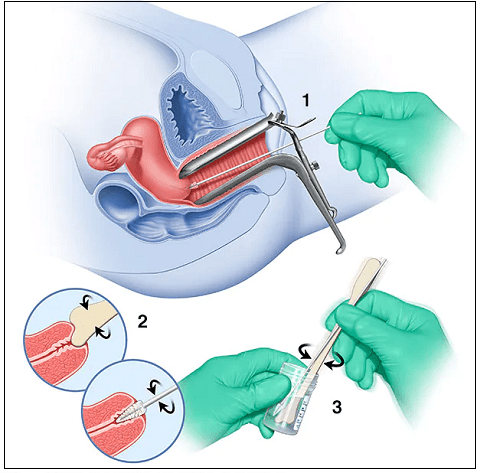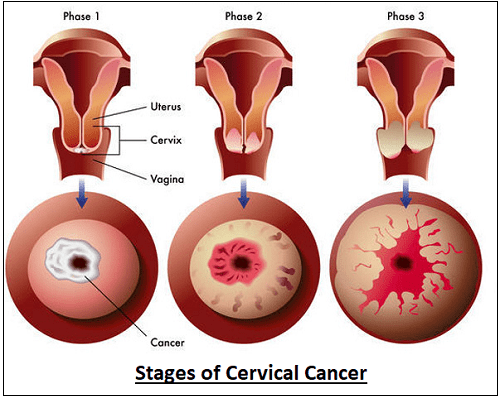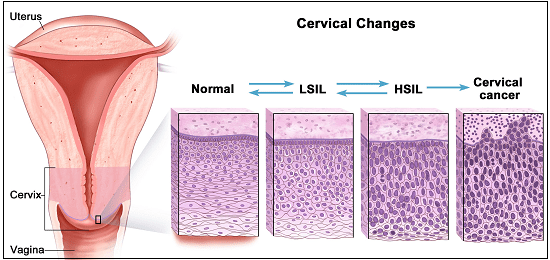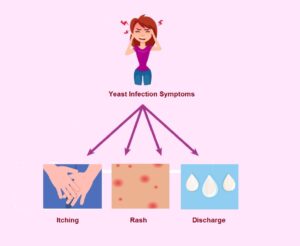A Pap smear is a screening tool for cervical cancer. All women should get a pap smear at regular intervals after the age of 21 years.
What is a pap smear?
A pap smear or a Pap test is a medical screening procedure to detect changes in the cervical cells which can develop into cancer. Also known as the cervical cytology test , it is named after Georgios Papanikolaou, the doctor who determined its use in detecting early signs of cervical cancer.
Cervical Cancer grows very slowly, so early detection by pap smear will increase the chances to get early treatment for a complete cure.
It is not very expensive. In India, the cost of a pap smear is usually between Rs 1500 – Rs 2000
What can a Pap smear detect?
A pap smear can detect:
- Precancerous cells
- Cervical cancer
- The test can be used to detect HPV (Human Papilloma Virus) infection.
How is a Pap Smear done? What are the steps of the procedure?
The pap smear is done in a sterile, germ-free environment.
You will be asked to lie down on your back on a small examination table. The legs are placed in stirrups for easy access to the vagina and cervix.
- A metal or plastic speculum ( a small device) is inserted into the vagina to expand it and view your cervix.
- A tiny, soft brush or a swab is rubbed against the inner areas of the cervix as well as the cervical edge to collect cells in that area.
- These are then put in a small container and sent for examination in the laboratory.
- The Pap test does not hurt but it can cause some sensation of pressure.

Where can I get the pap smear? where is it done?
The test can be taken at any medical institution, clinic or hospital.
How long does a pap smear take?
The entire procedure including a pelvic examination can take about 15-20 minutes but the actual collection of cells takes only about 1-2 minutes
Is a Pap smear and a HPV test the same thing? What is the difference?
The Pap test (or Pap smear) looks for precancerous cell changes on the cervix that might become cervical cancer if they are not treated appropriately. The HPV test looks for the virus (human papillomavirus) that can cause these cell changes and increase your cervical cancer risk.
Is a Pap smear and a HPV test done at the same time?
Yes, these can be done at the same time. The cells collected for a pap smear can also be tested for the presence of the HPV virus.
What’s the difference between a pelvic exam and a Pap test?
In a pelvic test, the doctor will examine the cervix and the vagina for any issues like infections or growths. He/she will then palpate the uterus and surrounding tissues for any abnormality.
A pap smear is different. In this test, cells are picked up from the cervix for a laboratory test. The uterus and other tissues are not examined.
Does a Pap smear detect STIs?
No, a pap smear does not detect Sexually transmitted Diseases. It only picks up cervical cells for an examination .
How often should I have a Pap smear?
The Centers for Disease Control and Prevention (CDC)Trusted Source recommend that all women between the ages of 21 and 65 should get regular Pap smears tests.
Women should start getting Pap smear screenings at the age 21 years. A HPV test also needs to be done at the time of the pap smear.
If the pap smear results are normal and the HPV test is negative, then it needs to be repeated every 3 years.
But if the results at any time show abnormal cells or if the HPV test is positive and especially if it shows the high risk strains of 16 and 18, then the pap smear will need to be repeated every year.
Pap smears are generally not necessary after the age of 65 years, especially if:
- The results have been normal for many years
- A total hysterectomy has been done and the cervix has been removed.
But if there are any risk factors like a previous history of cancer or if the woman is immunocompromised or if she has been exposed to diethylstilbestrol, then she may need pap smears to be repeated every 5 years.
Is a Pap smear very painful?
No, a pap smear is not a painful procedure. There may be some discomfort when the instruments are introduced into the vagina but there is generally no pain.
There may also be some discomfort and cramps after the procedure is over and over the next 24 hours. Relaxing the pelvic muscles and deep breathing will decrease the pain. Painkillers can be prescribed to prevent this discomfort.
Will there be bleeding during the procedure? Or after?
Yes, there may be some bleeding after the procedure, but in most cases, it is very light and will clear up spontaneously in the next 24-48 hours.
How should I prepare for a pap smear?
In general, no specific preparation is needed. But, a pap smear is best avoided during the periods since the sample may be contaminated with blood and may cause a false result. It is best to do the test at least a week before your period starts or ends.
- Inform your doctor about all the medicines you are on, including birth control.
- Inform your doctor if you have had an abnormal test earlier.
It is also better to avoid the following in the 24 hours prior to the procedure.
- Having sex
- Avoid penetrative masturbation, including inserting the fingers or a sex toy into the vagina. Penetration may lead to tissue inflammation in the vagina, which can interfere with the Pap smear.
- Douching the vagina
- Using tampons, vaginal creams and suppositories.
- Using birth control foam, cream, or jelly
- Shaving of the genital area.
Are there any risks to the test?
There are no risks in getting a pap smear. In some rare cases, there may be an infection. Sometimes, there may be pain or bleeding. The vagina or the cervical tissues may get swollen. There can be irritation and bleeding from the cervical scratch or scrape. These however clear up spontaneously or with minimal treatment.
If bleeding is present, it is best to avoid sex and not to use a tampon in the two to three days following a Pap smear . The additional pressure may cause bleeding to start again or become heavier.
What is the best time to do Pap smear?
The best time to do a pap smear is at least 5 days after the end of the menstrual period. This ensures that the pap sample is not contaminated by menstrual blood. Contamination can make the results inaccurate. A pap smear should be done between 5 days after the end of a period and 1 week before the next period is due.
Are pap smears always accurate? Can there be a false positive or a false negative result?
The Pap smear test is not 100% accurate and cervical cancer may be missed in a small number of cases. There can be false positive results or false negative results.
The overall diagnostic accuracy of the pap smear is 82.2%.

Do you need to get a pap smear if you are a virgin? Or if you are not sexually active?
Not all cervical cancers are caused by a HPV infection. Some can occur even in a virgin or if you are not sexually active. So, you do need a pap smear if you are over 21 years of age.
Do I need a Pap smear if I’ve had a hysterectomy?
In most cases, a pap smear is not needed if the uterus and cervix has been removed for causes like fibroids or other benign causes. But if the hysterectomy has been done as a treatment for cervical or uterine cancer, then a pap smear may be needed.
Can I avoid getting a pap smear? Is it absolutely necessary?
A pap smear detects cervical cells which are likely to become cancerous. So, while it is not absolutely necessary, it is best not to avoid getting one. The earlier the precancerous cells are detected, the earlier the treatment procedure can be started.
When should I get my test results?
In most cases, the results come in in about 3 weeks time.
What do Pap smear results mean?
Results from a pap smear can be normal, unclear or abnormal :
- Normal (or Negative): A normal result means that there is no sign of cellular changes in the cervix. This means nothing irregular was found.
- Unclear (or ASCUS): The full form of ASCUS is ‘Atypical squamous cells of undetermined significance‘. This result can also be described as equivocal or inconclusive. This result means that the lab couldn’t determine whether the cells are normal or abnormal. If abnormal, the changes may not be related to HPV but other conditions like an infection by other bacteria or even issues related to life changes like pregnancy and menopause.
- Abnormal (or Positive): A positive result means that abnormal cells were found in the pap smear. They can be minor (mild dysplasia), also called low-grade intraepithelial lesion (LSIL). Or they can be or serious (moderate or severe dysplasia), also called high-grade intraepithelial lesion (HSIL).

What happens if a Pap test is positive?
If the pap smear is positive, the next follow up will depend on whether it is mild or moderate dysplasia. In a mild dysplasia, you will be called for a repeat pap smear after 6 months since in many cases, the dysplasia can clear up spontaneously during this time.
If the dysplasia is moderate or severe, you will need more treatment to remove the cells. Treatment procedures can remove the cells (conization or LEEP) or will burn the abnormal cells ( cryosurgery or electrocautery).
What does it cost to perform a Pap smear Test in India?
In India, the cost may range between Rs 1500 – Rs 2000 for a pap smear alone. If combined with a HPV test, the cost may be between Rs 2000 – Rs 2500
Summary
A pap smear is a medical screening procedure to detect cervical precancerous cells and it is important that women between the ages of 21-65 years get a pap smear every 3-5 years.
Read More Questions and Answers on Pregnancy and Gynecology

How to stop my Period…
How can I stop or delay my period? Can I use birth control pills?

I think I have a yeast infection
I think I have a yeast infection. I had vaginal itching earlier and it is itching again now. What should i do?

I think I have Bacterial Vaginosis
I think I have bacterial vaginosis. I have a vaginal discharge with a fishy odor since the last few days. When should I see a doctor?

I am in early pregnancy and have dark brown discharge
Early pregnancy bleeding. What is wrong with me? What should I do?

I am in Menopause and Bleeding Heavily
I am 52 years old and in menopause. I have been bleeding heavily for 8 days. What should I do now?

Missed birth control pill. Will I get pregnant?
I missed a birth control pill on the second week. Then I took the next one on time. I also took the placebo pills I day early. Will I get pregnant?





